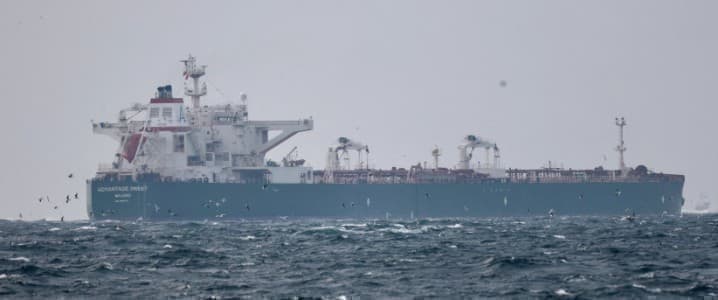By Cyril Widdershoven – Jul 06, 2025, 12:00 PM CDT

The Trump Administration has increased pressure on the Iranian regime, just weeks after striking Tehran’s nuclear facilities. Trump’s so-called “maximum pressure” sanctions have been stepped up, with Washington announcing new designations covering more than 30 tankers, entities, and individuals. Once again, Iran’s shadow fleet is in the crosshairs of U.S. sanctions, with no relief in sight for the regime in Tehran. As indicated by Trump and his advisors, Iran must return to the negotiating table to discuss its future—otherwise, as Trump and Steve Witkoff have stated, sanctions relief is off the table.
U.S. Treasury Secretary Scott Bessent stated, “As President Trump has made clear, Iran’s behavior has left it decimated.” He added that “Treasury will continue to target Tehran’s revenue sources and intensify economic pressure to disrupt the regime’s access to the financial resources that fuel its destabilizing activities.”
On Thursday, the U.S. Office of Foreign Assets Control (OFAC) said the targeted networks move “billions of dollars” worth of Iranian oil. OFAC’s designations include a list of companies linked to UK and Iraqi national Salim Ahmed Said, who is accused of “selling Iranian oil falsely declared as Iraqi oil since at least 2020.” The designations address Iraq-based operations blending Iranian with Iraqi oil and selling it as Iraqi or Emirati crude. One target is the VS Oil Terminal at Iraq’s Khor Al Zubair Port, owned by Said and featuring six oil tanks. OFAC also noted ship-to-ship transfers occurring near this terminal. Lloyd’s List has previously reported that forged documents and manipulated data are routinely used to disguise Iranian oil.
Other designations include UAE-based VS Tankers FZE, the Marshall Islands-flagged VLCC Dijilah, and 11 other tankers used for Iranian oil and LPG shipments. Some vessels were involved in sales for the Islamic Revolutionary Guard Corps – Quds Force. Also named were India-based ship manager Sai Saburi Consulting Services (linked to sanctioned Pakistan-based trader Alliance Energy) and Singapore’s Trans Arctic Global Marine Services.
These sanctions are based on Executive Order (E.O.) 13902, targeting Iran’s energy sector, and E.O. 13224 (as amended), addressing terrorism support.
For Iraq, the implications are significant. As Baghdad seeks deeper investment and cooperation with the West, U.S. sanctions involving Iraqi-linked operators could deter international oil, gas, and port investments. Baghdad also needs more natural gas. The broader U.S.-Israeli conflict with Iran and Washington’s bid to roll back Iranian influence in Iraq are adding to political and economic instability.
Iran’s grip in Iraq has weakened, but pro-Iranian Shi’a militias remain active. Internally, Baghdad is also in a dispute with the Kurdish Regional Government (KRG) over oil contracts and revenue-sharing. Kurdish media report growing instability, with drone strikes hitting Kurdish cities and airports in Garminyan, Duhok, Erbil, and Kirkuk—many occurring after U.S. and Israeli strikes on Iran. Kurdish forces have confirmed drone attacks since early June.
Washington’s involvement in Iran-Iraq dynamics is deepening. Trump’s strategy appears to be twofold: pressure Tehran to negotiate and pull Iraq into the Western orbit, countering China and Russia’s growing regional roles.
Still, the effectiveness of these sanctions remains unclear. Iran has increased crude and gas output, and oil exports to Asia continue. Trump’s mixed approach—imposing sanctions while allowing Chinese and Indian imports of Iranian crude—undermines the message. Harsher measures targeting buyers, rather than just Tehran’s networks, would likely be more effective in halting Iran’s oil trade. For now, the shadow fleet sails on.
By Cyril Widdershoven for Oilprice.com
More Top Reads From Oilprice.com:
- Iraq Claims Top Spot Among OPEC Crude Suppliers to the U.S.
- Russia’s Oil Exports Stagnate as Prices Sink and Sanctions Bite
- UK Scraps $34 Billion Morocco-Linked Subsea Power Cable Megaproject
![]()
Cyril Widdershoven
Dr. Cyril Widdershoven is a long-time observer of the global energy market. Presently he works as Director of Energy Security and Supply Chains, at Strategy…


